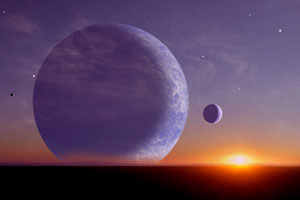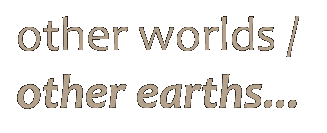Project Overview

The "Other Worlds" pilot project has three goals. First, your school and high student students will gain first-hand experience with the nature of scientific inquiry: They'll learn how to gather, assess and interpret their own data. They'll use interactive models to help make predictions and interpret findings. And they'll communicate their results to a nationwide community of student observers and professional scientists.
Second, this project provides many opportunities to apply the basic concepts of earth science, astronomy, and physics. These are concepts your students are already learning—and that they will use throughout science and not just for this project.
Finally, you'll be able to assess your students' understanding of core concepts as they progress through the project.
"Other Worlds" is in two parts and takes about two to three weeks of class time. Part One engages students in the authentic detection of another world, using the MicroObservatory online telescopes. These exoplanets, as they are called, are too far away to see directly. But as the planet orbits its star, it blocks some of the star's light. Your students can detect this periodic dimming using the telescope—and they can deduce from their observations how large the planet is, how far away it is, and even whether the planet's orbit is tilted.
In Part Two, students will learn how to use scientific models to tell much more about what these other worlds are like. Do they have oceans? Continents? An atmosphere? Life? They'll use a suite of interactive models to learn how to decode light coming from exoplanets and what the light can tell us about a planet's surface. They'll practice with hypothetical data from a "mystery" planet, and then—as they become available—real data gathered by space telescopes and astronomers worldwide.
Finally, students will create their own 3-D portrait of their mystery planet. They will have to draw on their imagination as well as the evidence they have considered.
Join the search! It's fun, it's challenging, and you will become part of history.



